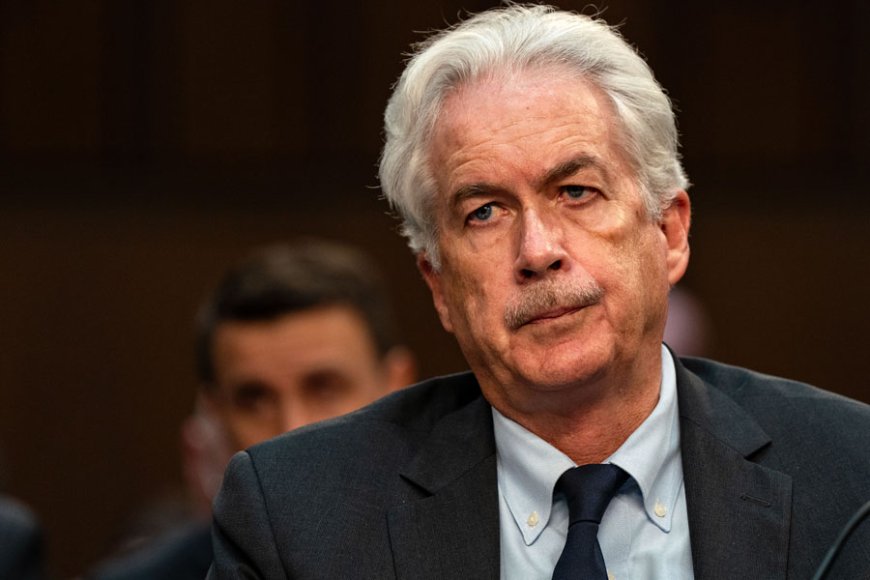Dead-Cat Diplomacy: Unraveling the Middle East’s Complex Negotiations
From James A. Baker III to Today’s Players

It could be useful to keep in mind the dead cat in order to comprehend what is currently going on in the Middle East.
When Secretary of State James A. Baker III traveled throughout the area in 1991 in an attempt to negotiate a complex deal, that became one of his go-to metaphors. Baker would threaten to "leave the dead cat" at each player's door if they didn't cooperate, implying that they would take the fall if everything went wrong.
Thirty years later, the issue remains whether the current parties in the US-brokered effort to negotiate a cease-fire in the Gaza Strip are at that point in the process. A large portion of what the world is witnessing right now is intended, at least in part, to acquire leverage at the negotiating table, outwit other parties, and avoid accountability in the event that a deal cannot be made, allowing the bloody seven-month conflict to continue unabated.
Videos of the hostages were published by Hamas, most likely to remind everyone of the seriousness of the negotiations and to put further pressure on Israeli Prime Minister Benjamin Netanyahu, who is already facing tremendous public pressure to ensure their release. In an attempt to show that he is serious about taking over the southern Gaza city, Netanyahu launched airstrikes and sent tanks into Rafah in recent days. To show that he is equally serious about limiting Israel's access to weapons should it launch an attack, President Joe Biden suspended a shipment of US bombs.
Aaron David Miller, who was on Baker's team at the time, stated, "Much of it is performative between Israel and Hamas, drawing a page from Baker's dead-cat diplomacy." Blaming the other man for the failure of the deal is more important than actually reaching an agreement. Biden is the only one who seems to be genuinely rushing.
Miller went on to use Netanyahu's moniker, "And sure, he's worried about Palestinian deaths if Bibi goes big in Rafah." However, he is also aware that it will make any negotiations "all but impossible" at that time.
The likelihood of a settlement became dimmer on Thursday when Biden's principal negotiator, CIA director William J. Burns, left Cairo without reaching an agreement. While mid-level representatives from the US and its partner middlemen, Egypt and Qatar, stayed in Cairo to continue talks in the hopes of saving the process, delegations from Israel and Hamas also left.
Theoretically, the principal negotiators were going a vacation to watch Israel's actions over what it is referring to as a “limited” operation in Rafah. According to reports from Cairo, there was a sharp exchange of accusations between the opposing factions, but U.S. officials maintain that a deal is still feasible.
As Baker, Henry Kissinger, and countless other American deal-makers have so painfully discovered, this is the traditional problem for any negotiation in an area known for opaque intrigues. In the daytime, posture plays a big part in a lot of things. A much of the important stuff happens in the shadows of the shadows.
Even longtime residents of the area may have trouble identifying true red lines and covert agendas. Every person seated at the table needs to be mindful of their own country's politics. None of them has complete faith in the others. A fresh counteroffer can be a cunning strategy to get opponents to back down or a sincere attempt to overcome a deadlock.
Who truly wants a deal and at what cost, or is this whole thing simply a front to take the moral high ground, are the main issues that each side poses to the others.
Michael Koplow, chief policy officer of the Israel Policy Forum, stated that "a lot of what we are seeing is aimed in part at trying to gain advantage in the negotiations, but the sum total has been putting a deal farther off rather than making one come together."
A deal that is now on the table would essentially ask for the release of hostages in exchange for a brief cease-fire. Additionally, Israel would permit the repatriation of hundreds of Palestinian prisoners to the northern portion of Gaza, release hundreds more, and authorize a significant influx of humanitarian aid.
This is the part of the agreement where everyone seems to be in agreement the most. Israel would suspend hostilities for 42 days during that initial phase, and Hamas would surrender 33 women, elderly men, and sick and injured captives that it had taken during its terrorist attack on October 7—some of them would be the remains of the dead. More hostages and Palestinian inmates would be released during a second phase of the cease-fire, which would last an additional 42 days.
The most contentious disagreement is over whether the agreement will ultimately result in an end to the fighting permanently, which is something that Hamas demands and which Israel has refused to promise. Without providing specific details, US negotiators have urged for talks to establish a "sustainable calm" once the cease-fire is implemented.
However, Netanyahu's recent actions in Rafah have compounded the situation. As expected, Hamas viewed his declaration that he would assault Rafah "with or without a deal" as a deal-breaker. In reaction to Hamas rocket attacks in Rafah that claimed the lives of four Israeli troops, he also issued a limited strike order.
For an extended period, Biden has opposed an attack on Rafah, the haven for over a million Palestinian refugees, on the grounds that he has not seen a military strategy that would spare significant numbers of civilian lives. Biden eventually intervened after months of forewarning Netanyahu against a Rafah operation, when American intelligence identified Israeli actions they deemed indicative of an impending invasion. Biden indicated that he would not be providing more offensive weapons that would allow an attack on Rafah by halting the supply of 3,500 bombs.
According to Koplow, "Biden believes that averting a Rafah operation will compel Israel to engage in more substantive negotiations, while Netanyahu believes that a fresh military operation will exert pressure on Hamas to reduce its demands." However, Netanyahu's insistence that a Rafah operation will occur regardless of the nature of the temporary cease-fire Israel accepts eliminates any motivation for Hamas to engage in negotiations.
He continued, saying that Yehia Sinwar, the military chief of Hamas thought to be holed up in the Gaza tunnels, "can reasonably assume that he will soon get a de facto cease-fire for free so long as he continues to hold out," which further eliminates any motivation for Hamas.
According to Koplow, Hamas has made demands that it is implausible for Israel to accede to. For example, it has insisted that Israel have no say over who is released from prison and that all Palestinian inmates released in the first phase must present their documentation before all Israeli hostages are freed. Therefore, he continued, "they are probably doing more than any other party here to make a successful negotiation impossible."
But in the last few weeks, the dynamics have shifted dramatically. At first, Biden declared that he would not support an attack on Rafah unless Israel could present him with a plan that would reduce the number of civilian casualties. Following several discussions over Israeli war plans, Biden has essentially stated that he is against any significant operation in Rafah and that such a plan is not feasible.
John Hannah, a senior scholar of the Jewish Institute for National Security of America and a former national security advisor to Vice President Dick Cheney, stated, "The blinking yellow light has turned a hard red." It's a significant shift if that holds true.
Because of this, according to Hannah, U.S. and Israeli interests—which were somewhat aligned at the start of the war after the terrorist attack by Hamas—have drastically diverged, changing the nature of the negotiations.
Although Netanyahu has stated that Israel's goal is to eliminate Hamas, the White House currently believes it is not achievable and that Israel has already caused enough damage to ensure that Hamas is no longer a threat. Furthermore, Biden is keen to mediate a more comprehensive deal that would revolutionize the area by bringing the US closer to Saudi Arabia, which would grant diplomatic recognition to Israel for the first time — an outcome that is unthinkable as long as Israel and Hamas are at war.
Hannah stated, "The president wants this war to end now, even if it means letting a much-weakened Hamas and its leadership survive for the time being." "He thinks that in terms of his regional agenda and reelection, he has much bigger fish to fry. Thus, rather than being in line, the American and Israeli notions of a cease-fire and hostage agreement are at odds.
On Thursday, Netanyahu declared that he would be prepared to continue the battle without Biden. He declared, "We will stand alone if we have to." However, he has already stated so while appreciating American weapons. Is it the public stance he must adopt before the negotiators get back around the table, or does he mean it right now? Is he genuinely prepared to offend Israel's most significant and close partner, or is he using Biden's stance to justify his retreat to the public?
Naturally, those are not the only queries. Even while Biden maintains that his commitment for Israel is "ironclad," is he really prepared to give up more offensive weaponry in order to avoid facing harsh domestic criticism from Republicans and some pro-Israel Democrats who claim he is abandoning Israel?
Are the leaders of Hamas prepared to compromise in order to avert a catastrophic attack on Rafah? Or do they believe that by further isolating Israel from the outside world, such an action may be advantageous to the group?
Except for the headline, this story has not been edited by Press Time staff and has been published from a syndicated feed.
If things continue the way they are, the cat might soon be discovered on the front step. Many may also bear the cost.





















































